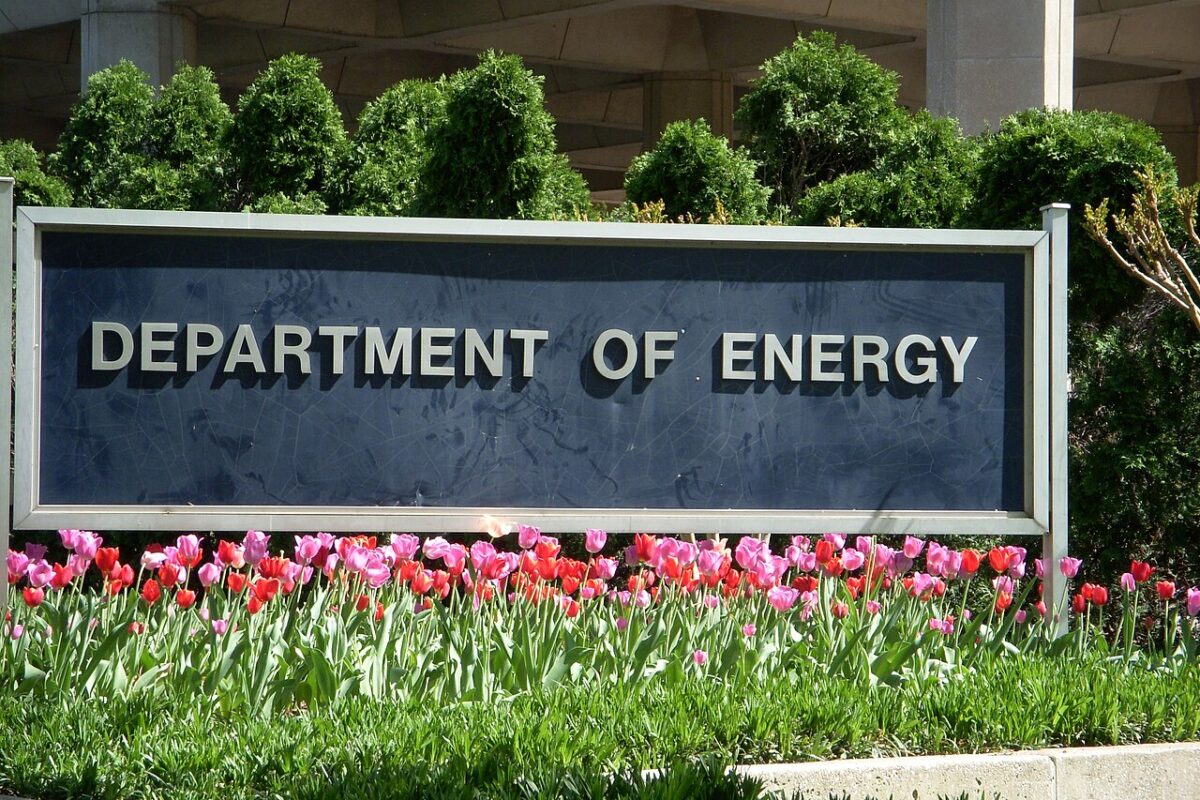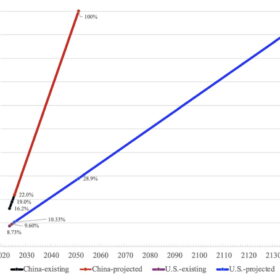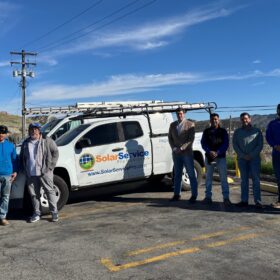Bloomberg NEF’s head solar analyst Jenny Chase tweets out her 2020 list of unpopular opinions on solar — and lands some clear shots on industry foibles (“suboptimal” rooftop designs) and unrealized opportunities (smart home technologies).
Chase is head solar analyst at Bloomberg New Energy Finance, and over the past three years, her annual, irreverent unpopular opinions have been a must-read for anyone looking for the kind of incisive, unexpurgated insights one rarely gets from top industry analysts.
Recently posted on @solar_chase, the 2020 thread clocks in at close to 40 tweets, including “minor updates” from last year’s list, such as the agrivoltaics tweet.
14. Agrivoltaics, likewise, is solar onna field.
PV only has synergies with *some* agriculture. Competition for light and restricted mechanical access to crops are often problems. Existing Chinese agrivoltaics are largely PV subsidizing bad farming.
— Jenny Chase (@solar_chase) October 18, 2020
About a third of the list is made up of acerbic reruns from previous years, which will likely still raise hackles. Chase is merciless on what she sees as the solar industry’s engrained foibles —
31. Many solar project developers complaining their problem is 'finance' are being disingenuous. Their problem is, their project is rubbish and they cannot convince anyone otherwise.
(This may not just be a solar thing).
— Jenny Chase (@solar_chase) October 18, 2020
But the chief value here are the changes, which generally focus on key trends and technologies driving the industry. One example, Chase updates her views on utility-scale energy storage, which last year was “likely to have more of a role” and is now “a massive thing, everywhere.”
She is particularly bullish on decarbonization. In previous years, Chase had pegged getting to 50% to 70% renewables as relatively easy. Now, she says:
25. “We” who are finally getting serious about net zero carbon mainly means governments and large companies. I’m pretty sure the general public has little idea how much progress has been made. Tell people at parties that Germany’s at 48% renewables!
— Jenny Chase (@solar_chase) October 18, 2020
The 2020 list also underlines the critical role of the grid and oversized projects in getting to those higher penetrations of renewables, backed up with what will likely be some of her more unpopular opinions on curtailment and project orientation.
8. For this reason, solar curtailment is a feature not a bug. Solar’s probably the easiest source of generation to curtail quickly, so can really contribute to grid stability. And sometimes curtailment is a price worth paying for using a grid connection more fully.
— Jenny Chase (@solar_chase) October 18, 2020
18. There’s more innovation now in system design than in module tech (though some there, eg multi busbars, bigger wafers). East-west orientations use less land and give flatter output profiles, costing ~1 percentage point of capacity factor, than equator-facing systems.
— Jenny Chase (@solar_chase) October 18, 2020
Not new but noteworthy
Largely unchanged, Chase’s views on nuclear (safer than coal or climate change) also run counter to conventional thinking, and her take on the main value for hydrogen may be even more provocative now than when it first appeared in 2019.
22. Hydrogen is going to be a thing, but not for transport and probably not for seasonal power storage – exactly. Using renewables when they’re plentiful to make H2, then using the H2 to make steel or fertilizer, looks quite promising.
— Jenny Chase (@solar_chase) October 18, 2020
Similarly, Chase’s tweets on the residential and commercial solar markets pose a challenge for the industry. The lack of updates here signals that developers and installers may not be adapting to market shifts or leveraging new technology as well as they might.
She still thinks that most rooftop systems are designed “suboptimally” and that banking on retail-rate net metering is a losing proposition. Self-consumption rates will be “the most important financial parameter for rooftop solar,” as will time-of-use rates.
36. Commercial and residential power pricing structures are going to get more complicated to reflect cheap midday solar. The main role of smart home technology is to take advantage of this. It's not currently doing it very well.
— Jenny Chase (@solar_chase) October 18, 2020
And, as Chase has been saying for three years, we still need a better market design.
This content is protected by copyright and may not be reused. If you want to cooperate with us and would like to reuse some of our content, please contact: editors@pv-magazine.com.








I had much the same comment about H2 on another website for a story about Nikola. H2 might also be useful for shipping.
She is not an engineer and has no field experience. She is an analyst and should stay within her bounds.
Commenting on things she really has no practical experience in.
Ahem… Jenny Chase rocks.
Jenny Chase rocks!